Due to the success of the Azrieli Faculty of Medicine’s well-known Teddy Bear Hospital, and in light of the immediate and pressing need resulting from the sudden outbreak of the Iron Swords war with Hamas, the Faculty immediately stepped into action and initiated the inaugural “Teddy Bear Strength and Resilience Center” to offer intervention for children aged three to 12, with a focus on healing both their minds and bodies.
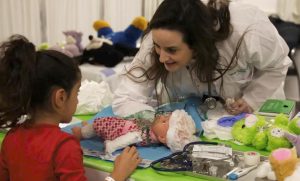
The pilot program was launched on both BIU campuses, one in Safed (Tsfat) and the other in Ramat Gan as a collaboration between the Medical School, the Department of Psychology, and the School of Social Work. The Student Unions in both places came together to enable students to partner with the faculty members.
The annual Teddy Bear Hospital is a highlight of the Faculty of Medicine and its aim is to expose young children to medical personnel and treatments in a very friendly, non-stressful environment – via their beloved stuffed animals who “undergo” the check-ups and treatments given by the children.
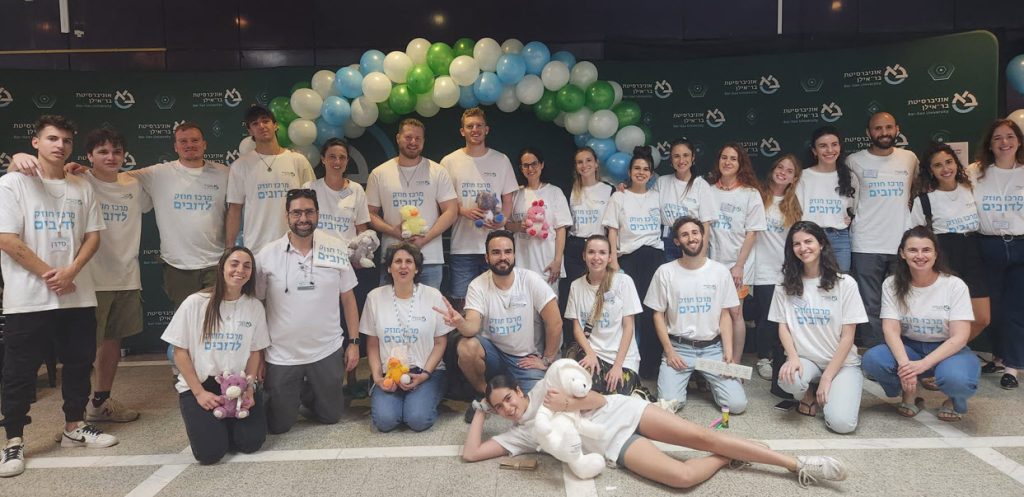
The Ramat Gan Team
The new Center works in the same way, but focuses on promoting resilience of the animals (teddy bears and other toy animals as well as dolls), the children, and their parents. After doing a medical check, the families were given a short focus intervention, which included some discussion and age-adapted techniques for stress relief and coping with fear and anxiety.
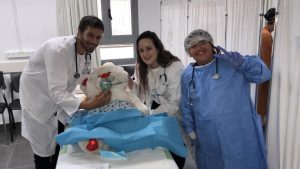
Hundreds of children participated with their parents and their teddy bears and other toys. Activities were created to increase the children’s sense of resilience and restore feelings of competence and control through their teddy bears and were led by about 25 medical, psychology, and social work students.
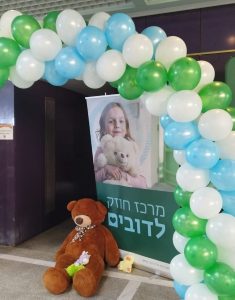
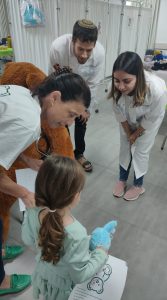 “This is a very important and exciting project,” said Dr. Nomy Dickman, Head of BIU’s Evaluation and Advancement of Education Unit. “It was encouraging to see so many people participate and watch our students in action. Children always bring joy.”
“This is a very important and exciting project,” said Dr. Nomy Dickman, Head of BIU’s Evaluation and Advancement of Education Unit. “It was encouraging to see so many people participate and watch our students in action. Children always bring joy.”
Prof. Rachel Dekel from the School of Social Work added, “This is a unique project as we employ a holistic approach, taking into consideration bodies and minds and working with the children and their parents.
“Moreover, we teach the children some techniques that they can teach others in the family and their friends. One of them took an idea we offered her for regulating distress and presented it to her kindergarten teacher,” Prof. Dekel said.
Contact Us for More Info
Leave your details and we’ll get back to you soon


